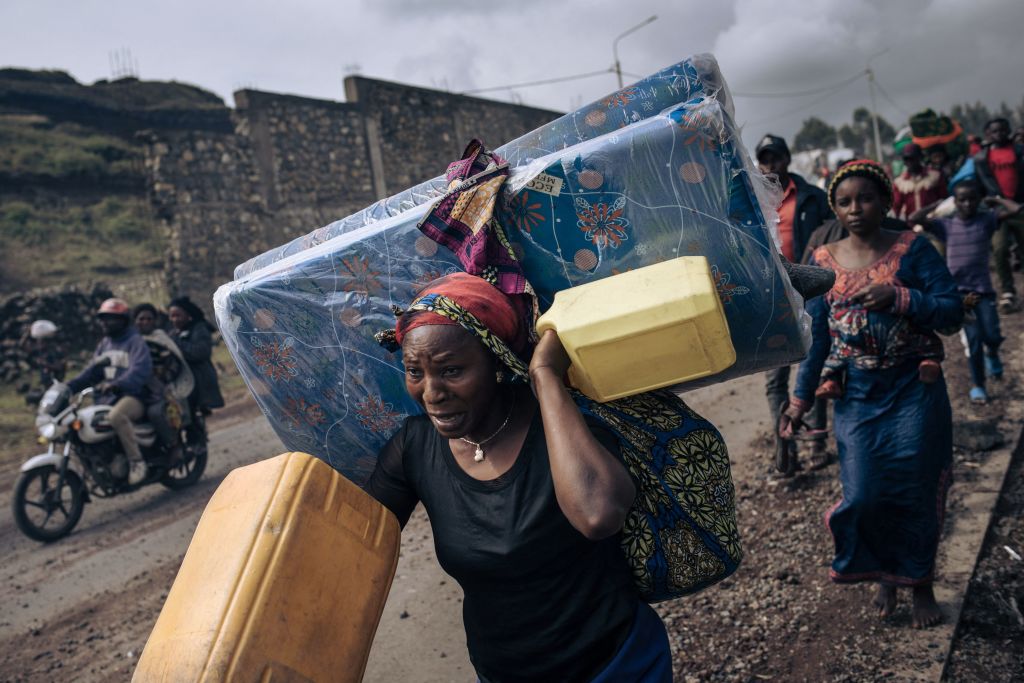ADF STAFF
Holding his baby on his shoulders with one hand and a large bag of clothes for his family of eight on the other, Safari Hangi led the way to safety, walking alongside a dirt road toward the capital of North Kivu province.
The eastern region of the Democratic Republic of the Congo (DRC) is brimming with rebels, security forces and refugees. All are on the move.
The M23 rebellion reignited more than a year ago and, in early 2023, rebel advances left hundreds of civilians dead. The rebels are accused of massacres, rape, forced recruitment and other atrocities.
Recent moves by the rebels are choking the economy of North Kivu’s capital of Goma, while tens of thousands of displaced civilians stream into Goma and have set up informal camps on the city’s outskirts.
Hangi and his family walked for hours through the city of Sake and across winding, hilly roads toward Goma, anxious to stay ahead of the rebels, who had seized Mushaki village around 15 kilometers to the west.
“If it weren’t for this war, we would be in our village without any problems, farming and getting on with daily chores,” the 42-year-old told Reuters. “Now that we are displaced, that’s all over and we suffer.”
Despite an increase in funding, from $459 million in 2021 to $700 million in 2022, the Congolese military is struggling to subdue the insurgents.
The Tutsi-led M23 claims it is protecting ethnic Tutsis in eastern DRC while also accusing the DRC of disregarding a 2009 peace treaty that promised to integrate its fighters into the army.
“We want a direct dialogue with the government to address the root causes of the conflict,” M23 political spokesman Lawrence Kanyuka told Agence France-Presse (AFP) without specifying the group’s demands.
“We can’t put the cart before the horse.”
The DRC has accused neighboring Rwanda of funding and supplying the rebels. Despite evidence from United Nations experts supporting the DRC’s claims, Rwanda continues to deny its involvement.
Through multiple offensives since late 2022, M23 has taken large stretches of North Kivu, including important agricultural lands and nearly all of the key roads for commerce. By February 2023, the rebels were close to surrounding Goma.
With all of its trade routes cut off, prices in Goma have risen sharply, some by as much as 20% in October and November 2022, according to a food security group led by the U.N.’s Food and Agriculture Organization and the World Food Programme.
Onesphore Sematumba, a DRC analyst for the International Crisis Group, said the rebels intend to strangle Goma to pressure the government into talks.
“If we can’t negotiate a humanitarian corridor for the city, it will be a catastrophe,” he told AFP.
About 15 kilometers to the east, Sake is one of the last remaining trading posts connected to Goma. But in late February, the normally lively markets of Sake were quiet and empty.
Trader Pascal Habamungu Kasilika said M23’s advance to Mushaki has left people feeling trapped and afraid.
“It worries us,” he told AFP. “We ask ourselves, where do we go? Where do we flee to? Who do we go to for help? This problem is beyond us.”

